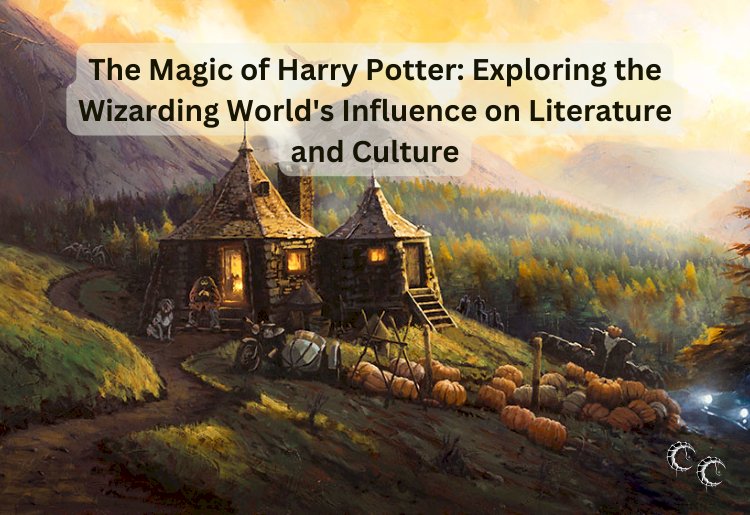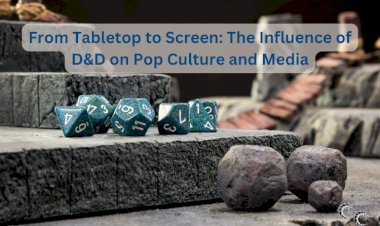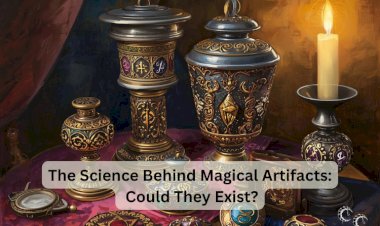The Magic of Harry Potter: Exploring the Wizarding World's Influence on Literature and Culture

Few modern literary phenomena have had such an enduring impact on global culture as J.K. Rowling’s Harry Potter series. What began as a tale of a young boy discovering he’s a wizard has grown into a sprawling empire, with books, films, theme parks, merchandise, and even academic studies dedicated to its legacy. The world of Harry Potter is not just a captivating story of magic, friendship, and heroism; it is a cultural touchstone that has shaped how we view fantasy literature, young adult fiction, and even our understanding of societal values.
The Harry Potter series has impacted readers of all ages, transcending generations, nationalities, and languages. With over 500 million copies sold worldwide and translations into more than 80 languages, the books have created a fanbase that is unparalleled in its devotion and enthusiasm. In this article, we’ll explore the deep cultural influence of the Wizarding World and its lasting legacy in literature and beyond.
The Birth of a Global Phenomenon
The story of Harry Potter begins in 1997 with the publication of Harry Potter and the Philosopher’s Stone (released as Sorcerer’s Stone in the U.S.). A seemingly humble start for a young adult novel, it quickly became a sensation, propelling J.K. Rowling from an unknown author to a global literary superstar. The series, spanning seven books and a successful film adaptation, became a worldwide cultural force, bringing new attention to both children's literature and fantasy fiction.
Rowling’s world-building, complex characters, and timeless themes made the Harry Potter series an instant classic. But it’s not just the magic that captures the imagination; it’s the way Rowling’s narrative resonates with universal themes of love, loyalty, courage, and the battle between good and evil. These elements spoke to readers of all ages and backgrounds, allowing the series to transcend its fantasy roots and appeal to anyone who has ever felt like an outsider, struggled with identity, or fought for what is right.
The Evolution of Fantasy Literature
Before Harry Potter, fantasy literature had a strong foothold in the literary world, but it was often viewed as a niche genre, particularly in children's fiction. Authors like J.R.R. Tolkien and C.S. Lewis had made indelible marks on the genre with their epic tales of magic and adventure, but fantasy was rarely considered “mainstream” in the same way as genres like mystery or historical fiction.
The Harry Potter series, however, ushered in a new era for fantasy, especially for young readers. Its success propelled the genre into the cultural spotlight, inspiring a wave of fantasy novels for children and young adults. In the wake of Harry Potter’s massive popularity, other fantasy series such as Percy Jackson & the Olympians by Rick Riordan, The Hunger Games by Suzanne Collins, and Eragon by Christopher Paolini emerged, building upon the groundwork that Rowling laid.
Harry Potter’s influence on the genre is undeniable: its magical world-building, dynamic character arcs, and intricate plots set the stage for countless other fantasy works that followed. The success of the series demonstrated that young adult fiction could be both commercially successful and critically celebrated, and that fantasy novels could be as complex and thought-provoking as any other literary genre.
Shaping Modern Young Adult Literature
The Harry Potter series also had a profound impact on the structure and content of modern young adult (YA) fiction. One of the key ways in which Harry Potter shaped the genre was through its focus on character development. From the very beginning, readers watch Harry, Hermione, and Ron grow and mature through the challenges they face—both magical and personal. The characters' evolution over the course of the series parallels the growth of the readers themselves, drawing them into the story and making them feel as though they, too, are on a journey of discovery and self-realization.
In addition, Harry Potter pushed the boundaries of what young adult fiction could tackle. While the series started as a whimsical and lighthearted adventure, it quickly evolved into a much darker narrative dealing with themes of prejudice, power, sacrifice, and identity. This evolution mirrored the way that readers grow older and are confronted with more complex moral questions as they mature. It demonstrated that YA literature could tackle difficult, nuanced issues while still being accessible to a wide audience.
Rowling’s nuanced portrayal of friendship, loyalty, and perseverance became central tenets in YA fiction, influencing how later books approached character dynamics. The bonds of friendship between Harry, Hermione, and Ron set a new standard for strong, supportive friendships in literature, which would influence other series that followed. Additionally, the portrayal of Harry as an underdog and a reluctant hero resonated deeply with readers, setting a trend for protagonists who are imperfect and complex, but still capable of great courage.
Impact on Popular Culture
Beyond the realm of literature, Harry Potter has had a significant cultural impact, shaping everything from film adaptations to fan conventions, and inspiring countless pieces of fan art, fan fiction, and even academic discourse. The film series, which began with Harry Potter and the Sorcerer’s Stone in 2001, expanded the reach of the books, introducing the wizarding world to millions of people who may not have read the books.
The films themselves are a visual and cultural phenomenon. The casting of actors like Daniel Radcliffe, Emma Watson, and Rupert Grint became iconic, and the Harry Potter films remain some of the highest-grossing movies of all time. The special effects, enchanting magical landscapes, and whimsical costumes brought Rowling’s world to life in a way that delighted fans, while also introducing a new generation to the magic of the books.
Moreover, the Harry Potter franchise has sparked an entire subculture of fandom, with conventions like LeakyCon and Wizarding World theme parks in Orlando, Hollywood, and Tokyo providing fans with immersive, magical experiences. Fans flock to these events, not only to celebrate their love for the series but to connect with others who share their passion. The community surrounding Harry Potter has fostered an enduring sense of belonging, friendship, and enthusiasm for the books and films.
The Legacy of Harry Potter in Today’s World
Even years after the last book and film were released, the Harry Potter series continues to shape modern culture. The themes of unity, love, and standing up to injustice remain relevant in today’s society. The battle between Harry and the dark forces led by Voldemort mirrors ongoing global struggles against hate, inequality, and division, making the series not just a piece of entertainment but a cultural touchstone that speaks to deeper truths about humanity.
The lessons of the Harry Potter series—on courage, sacrifice, and the power of love—are timeless, and the books continue to be read by new generations. In many ways, the wizarding world has become a touchstone for conversations about morality, friendship, and the importance of standing up for what is right, even when the odds seem insurmountable.
In the years since Harry Potter first captured the hearts of readers, the wizarding world’s influence has only grown stronger. The Fantastic Beasts films, stage plays like Harry Potter and the Cursed Child, and the continued success of theme park attractions ensure that the magic of Harry Potter will continue to captivate audiences for years to come.
Conclusion: The Enduring Magic
From its humble beginnings as a children’s book about a young wizard to becoming a global cultural phenomenon, the Harry Potter series has left an indelible mark on literature, cinema, and popular culture. Its influence on fantasy literature is profound, inspiring a new wave of young adult fiction and changing how readers approach stories of magic, heroism, and growth.
For many, the Harry Potter series is more than just a story—it’s a life-changing experience that continues to inspire, challenge, and unite readers across the globe. The magic of Harry Potter is far from over, and it will undoubtedly continue to shape the cultural landscape for generations to come.





























